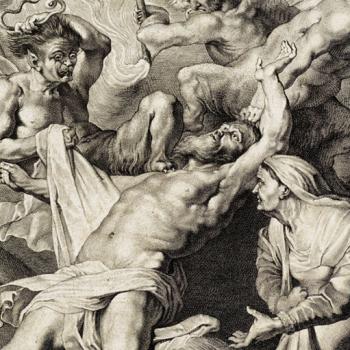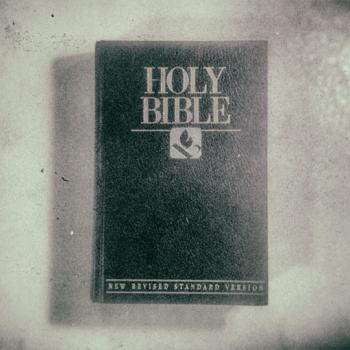This guest post is by Russell Croft.

First, let me begin with a disclaimer. I am not anti-denomination or, for that matter, anti-church. I love the rich frameworks and traditions of faith that have been passed down to us through the ages, and the way that new denominations are continually popping up all over the world, seeking greater understandings of God and exploring fresh avenues for worship and connection with him and with each other.
There is something of a unity in the body of Christ, despite the differences that define the particular denomination or tradition to which we personally subscribe. Whether we are Catholic, Pentecostal, or Methodist, Jesus binds us together as brothers and sisters in faith.
There is a lot we can learn from each other as we share our differing perspectives and understandings of Jesus. That is, if we can dare to be a little vulnerable and admit that maybe we don’t have God all figured out.
Being more “right”
This is the danger of denominationalism. When our faith traditions take their statements of faith and hold them up as the be all and end all of who Jesus is. When our particular teachings are held up as superior to those of other denominations, writing them off as misguided at best or heretical at worst. It seems to be the nature of the human condition, to keep God in the box of our understanding, not allowing him outside of the confines of what we know.
Differences in understanding can be good. They can add richness to our theology, to our practice, to our lives, if we choose to engage the differences with a desire to learn from them. We can use our engagement with difference to reflect on the strengths and weaknesses of our own perspectives. But too often, the default is to fear what we do not know, and we write things off on a very surface level, never daring to venture any deeper into beliefs and traditions that challenge our own.
And so churches and denominations can become very closed-in areas of belief. They require their congregations to hold to their own particular statement of beliefs, which is great for defining their community and giving people something tangible to connect with. But they also serve to create barriers between our brothers and sisters in Christ from other churches.
A reflective journey
My own experience with these issues has challenged my sense of faith and identity over the years. At one stage, I was going to a Baptist church, a Lutheran youth service and a Catholic Bible study. While studying for a diploma, I was exposed to denominations from six major streams of Christianity as highlighted in Richard Foster’s book Streams of Living Water: the Evangelical, Charismatic, Contemplative, Social Justice, Incarnational, and Holiness traditions. We were allowed to ask questions of the leaders of these churches and engage in conversations around the differences between the traditions that we were a part of.
This was a powerful time of reflection for me, as I delved into the richness of my own faith background and discovered truths that were highlighted in greater ways in other traditions. I was able to honestly critique my own faith tradition and allow my faith to evolve as I incorporated all of these streams into my understanding.
God is bigger than our beliefs
I can no longer call myself an Evangelical, or a Charismatic, or claim any of the other traditions as my own, as my understanding of God has come to include all of the above. Sure, there are parts of each that don’t particularly resonate with me or that I find are better conveyed through other traditions, but I have come to appreciate them all in their own way.
Now, when I hear Christians arguing over baptism, the millennium, heaven and hell, Arminianism and Calvinism, or salvation and faith, I listen to see if both parties are looking to learn from each other or looking to discredit each other. If we are to truly be the body of Christ and represent him well, these are questions that are well worth asking of ourselves.
Image via Pixabay, edited by Dan Wilkinson.
 About Russell Croft
About Russell Croft
Russell has a heart for community and connecting with the marginalised and forgotten. He is getting to know the God of infinite goodness and is living a joy-filled life with his wife Belinda and three children in South-East Queensland Australia. He writes regularly for Periecho.com and his previous work can be found at http://www.periecho.com/russell-croft












